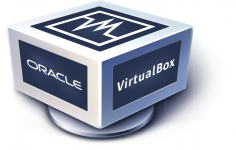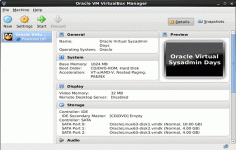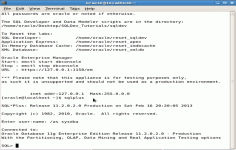 VirtualBox 5.1.24.117012
VirtualBox 5.1.24.117012
Oracle - ( Open Source)
VirtualBox is an easy and elegant solution for those who want to control a computer from another computer.
VirtualBox offers virtualize your operating system (OS) guests on a host machine. Called hypervisor, the application supports Windows OS X, Linux, Mac, Solaris, FreeBSD, etc.. as host, Mac OS X missing the call as a guest.
It also includes a remote access via HTTP protocol, convenient for demonstrations on a clean system. The ability to manage multiple states of the system is particularly interesting and its interface is very simple.
Virtualization solutions allow installing an operating system on a virtual machine using the resources of the host PC , thus enjoying very good performance. In the genre, several solutions are known for their ease of use, such as VMware Workstation , Parallels Desktop or Microsoft Virtual PC 2007 SP1.
A virtual machine is a useful way to use two operating systems simultaneously and harmless to the host computer. There is the possibility to install Linux on a virtual machine on Windows and vice versa .
- Title:
- VirtualBox 5.1.24.117012
- File Size:
- 118.1 MB
- Requirements:
- Windows XP / Vista / Windows 7 / XP 64-bit / Vista 64-bit / Windows 7 64-bit / Windows 8 / Windows 8 64-bit / Windows 10 / Windows 10 64-bit
- Language:
- en-us
- License:
- Open Source
- Date Added:
- 18 Jul 2017
- Publisher:
- Oracle
- Homepage:
- http://www.oracle.com
- MD5 Checksum:
- 2C38621F61160CCA123F861E737CFE6A
The following items were fixed and/or added:
VMM: mask the VME CPUID capability on AMD Ryzen processors for now to make certain guests works, for example Windows XP.
VMM: emulate more SSE2 instructions.
VMM: properly clear the TF and AC flags when dispatching real-mode interrupts.
GUI: fixes to make the mini-toolbar work with recent versions of KDE / Plasma.
GUI: fixed a potential crash when a VM with multiple screens is running in full screen / seamless mode and a host screen is removed, for example when connecting to the host via RDP.
GUI: fixed initial size hints for guests which set intermediate sizes before responding.
GUI: prevent stopped screen updates or black screen on reboot in a multi-screen setup under certain conditions.
Audio: many improvements for Windows 10 guests.
Storage: fixed possible crash when using Intels SPDK.
API: use the correct file name of the VM machine state if the VM settings directory is renamed, for example during grouping / ungrouping a VM.
API: return the correct error code if powering up a VM fails.
API: video recording did not automatically start at VM start when enabled in the VM settings.
API: when relocating a medium, check that the target path is fully qualified.
EFI: fix for VMs with more than 3504MB RAM.
Host-only adapter: correctly determine IPv4 netmasks on Windows hosts.
NAT network: properly do the refcounting for starting / stopping the NAT / DHCP services if the NAT network is changed while the adapter network connection type is anything else but NAT network.
VBoxManage: fixed controlvm videocapfile.
Windows hosts: fixed crashes if driver verifier is enabled.
Linux / Mac OS X hosts: more fixes for loading shared libraries (5.1.20 regression).
Linux hosts / guests: Linux 4.12 fixes.
Linux hosts / guests: reduce the kernel stack consumption for Linux kernels with CONFIG_CPUMASK_OFFSTACK defined.
Linux hosts / guests: fixes for kernel modules built with gcc-7.
Linux hosts / guests: Linux 4.13 fix.
Linux hosts: don't depend on net-tools on newer distributions as this package is deprecated in favour of iproute.
Linux hosts: make 2D video acceleration available for older Linux distributions (5.1 regression).
Linux Additions: fix for dynamic resizing with Oracle Linux 6 with UEK4.
Linux Additions: make Fedora 25 and 26 Alpha work when 3D pass-through is enabled.
Linux Additions: no longer recommend removing distribution- installed Additions if they are updated to our guidelines.
Related software
0.1/5 from 1120 users


